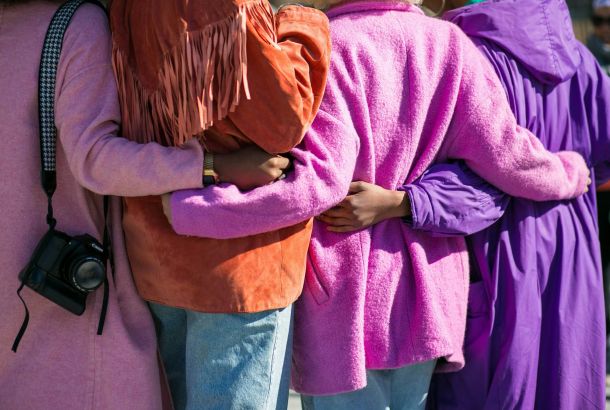Navigating the Rwanda bill: Why student voices matter
By kiarapinto

This article was written and edited prior to the Rwanda bill being passed on April 22.
In April 2022, then Conservative Prime Minister Boris Johnson announced a plan to deter migrants from illegally crossing the English Channel through threat of deportation to Rwanda. However, in June 2022, the first deportation flight to Rwanda was blocked by judges at the European Court of Human Rights (ECHR). Since then, tension between the House of Commons, the House of Lords, and the judiciary have been rising. Discussions over basic human rights are coming to define the politics of a country that young people are soon to inherit. Considering this, the youth vote is crucial in keeping Parliament in check.
Despite stringent immigration policy being one of current PM Rishi Sunak’s central goals, his premiership has seen further delay to the implementation of the Rwanda bill. As Rwanda was ruled an “unsafe third country,” the case of eight asylum seekers was taken to the UK’s Supreme Court (UKSC), in November 2023. Six judges declared their attempted deportations as in breach of human rights.
With multiple courts of law ruling against the government’s immigration bill, Rwanda’s poor treatment of asylum seekers is unignorable and well documented. For example, Dr Kirsty Hughes, an academic from the University of Cambridge, has outlined Rwanda’s lack of judicial independence and poor human rights record, including when the Rwandan police fired live ammunition at refugees, killing 12, in 2018.
It comes as no surprise, then, that in the same year an Israel-Rwanda deportation deal was abolished, as the Israeli Supreme Court declared Rwanda’s inability to comply with the assurances it provided as unlawful. And the UK government is clearly aware of Rwanda’s horrific record too, given that as recently as 2021 the government condemned Rwanda for extrajudicial killings, deaths in custody, enforced disappearances, and torture.
With such a history of illegality and human rights violation within the African nation, the Rwanda policy reveals the subtle danger within the doctrine of parliamentary sovereignty when the government has a sizeable majority, particularly as it affects issues with ethical concerns; although the judiciary have intervened in the government’s plan, it’s only resulted in the parliamentary ping-pong process. It also calls into question the UK’s commitment to the ECHR, placing the future of human rights in the UK into a grey area.
Nonetheless, hope remains. Rwandan President Paul Kagame has offered to return money paid by the UK if no asylum seekers are sent. So, with a general election imminent, there is still time to reverse this drastic, unjust measure.
Considering this, it’s now, more than ever, crucial for young people to exercise their right to vote. Party policy should be defined by the beliefs and values of young citizens and students, as legislation enacted now will shape decades upon decades of our lives. With 71% of young people feeling that political parties don’t speak directly to them or about issues they’re concerned by, it’s obvious that most young voters don’t desire a government that blatantly disregards the most basic human rights of vulnerable people.
Not to mention the Conservatives’ obsession with restrictive immigration policy sits on a mandate granted by the 2016 Brexit vote that very few young people voted in favour of, with a whopping 75% of people aged 17-25 voting to remain in the EU. An increase in youth voting is crucial in combatting the disconnect between government and electorate, and what better place is there to start than at the Greater Manchester Mayoral election at the beginning of May?
Not only is the Rwanda scheme a horrific prospect for asylum seekers coming to the UK, but it doesn’t look like it’s going to benefit British citizens much either. Thus far the government has paid £240 million to Rwanda, with further payments due. These payments fall under the assumption that Britain will be able to send thousands of migrants to the African nation, yet it’s estimated that Rwanda only has room for two or three hundred more asylum seekers. It therefore looks unlikely that the Rwanda scheme will help ease the £3 billion a year Britain spends processing asylum seekers.
After the judgement of the UKSC, it’s very clear the Rwanda bill is not viable. It promotes neither human rights nor economic efficiency. However, Sunak’s government intends to push the legislation through Parliament, inaccurately declaring Rwanda a safe country, for the sake of skewed political aims. The Rwanda policy clearly shows how dangerous the political will of the governing party can be, jeopardising the integrity of the rule of law and the separation of powers. We must see a more galvanised youth vote than ever before to vehemently oppose this bill.







